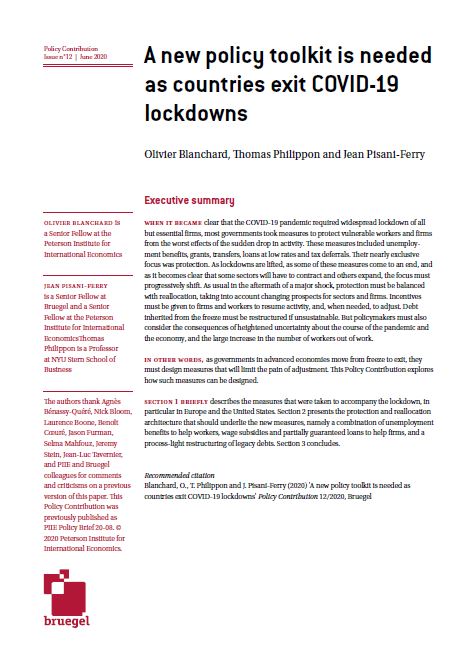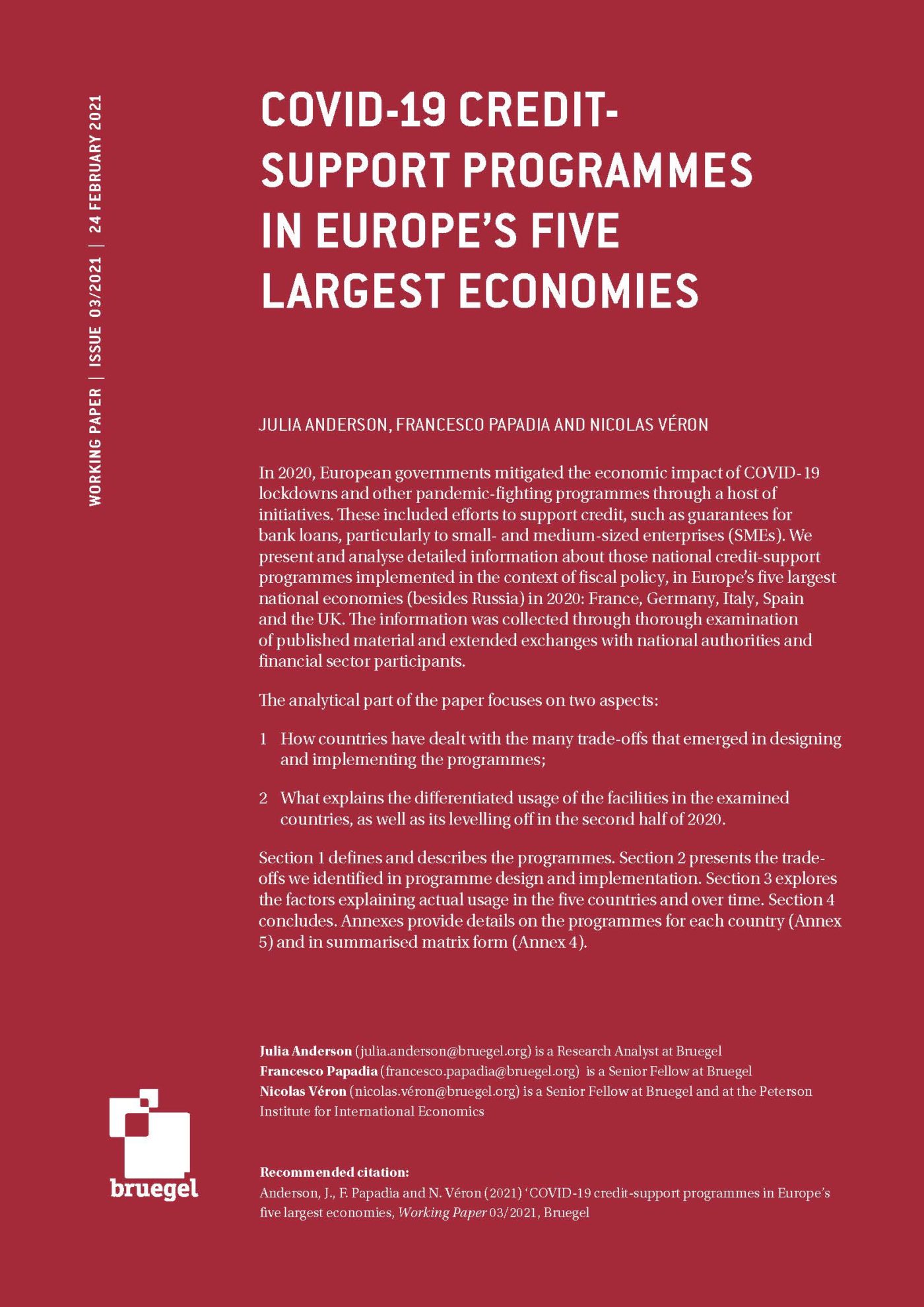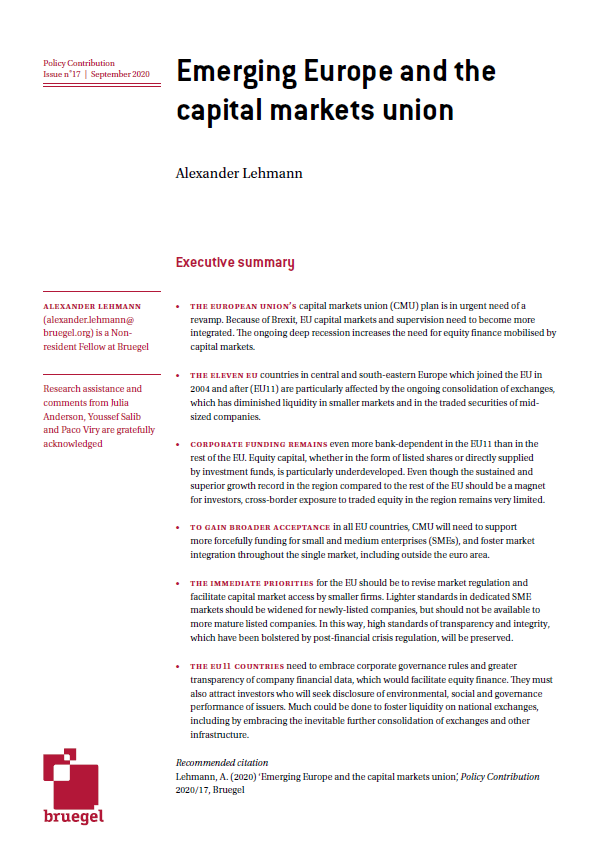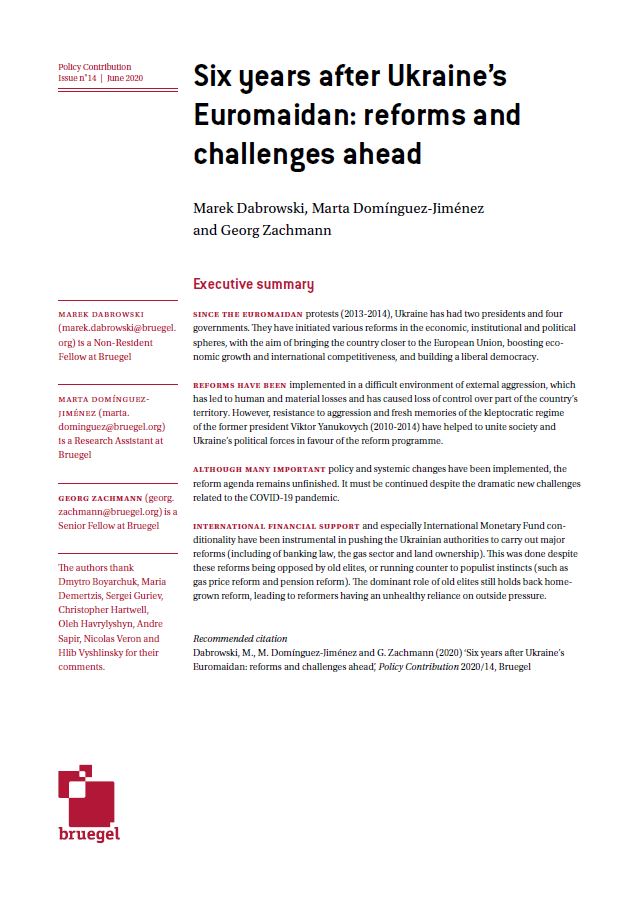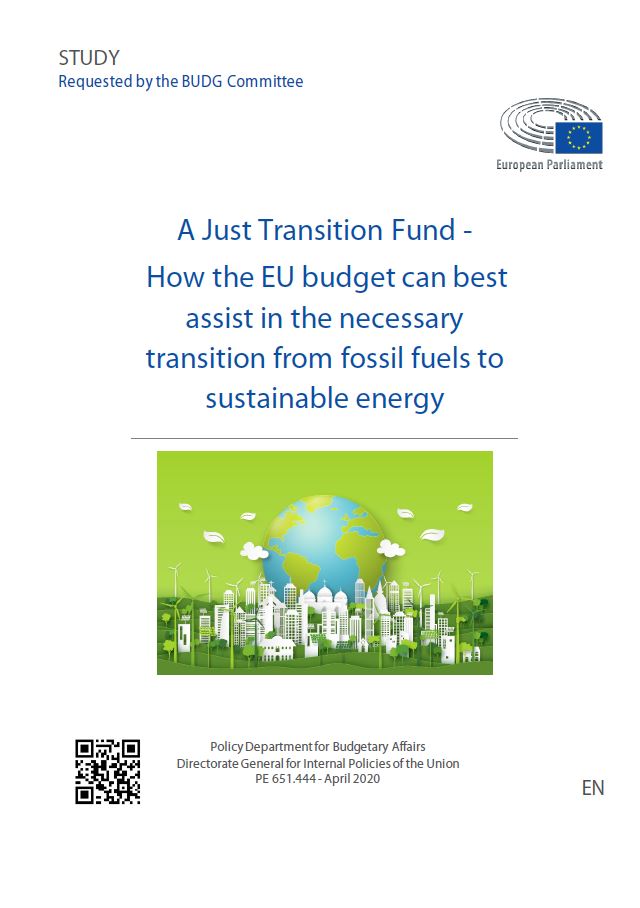Policy Contribution
A new policy toolkit is needed as countries exit COVID-19 lockdowns
Most governments have taken measures to protect vulnerable workers and firms from the worst effects of the sudden drop in activity related to COVID-19. But as lockdowns are lifted, the focus must shift, and governments in advanced economies must design measures that will limit the pain of adjustment.
When it became clear that the COVID-19 pandemic required widespread lockdown of all but essential firms, most governments took measures to protect vulnerable workers and firms from the worst effects of the sudden drop in activity. These measures included unemployment benefits, grants, transfers, loans at low rates and tax deferrals. Their nearly exclusive focus was protection. As lockdowns are lifted, as some of these measures come to an end, and as it becomes clear that some sectors will have to contract and others expand, the focus must progressively shift. As usual in the aftermath of a major shock, protection must be balanced with reallocation, taking into account changing prospects for sectors and firms. Incentives must be given to firms and workers to resume activity, and, when needed, to adjust. Debt inherited from the freeze must be restructured if unsustainable. But policymakers must also consider the consequences of heightened uncertainty about the course of the pandemic and the economy, and the large increase in the number of workers out of work.
In other words, as governments in advanced economies move from freeze to exit, they must design measures that will limit the pain of adjustment. This Policy Contribution explores how such measures can be designed.
Section 1 briefly describes the measures that were taken to accompany the lockdown, in particular in Europe and the United States. Section 2 presents the protection and reallocation architecture that should underlie the new measures, namely a combination of unemployment benefits to help workers, wage subsidies and partially guaranteed loans to help firms, and a process-light restructuring of legacy debts. Section 3 concludes.
Recommended citation
Blanchard, O., T. Philippon and J. Pisani-Ferry (2020) ‘A new policy toolkit is needed as
countries exit COVID-19 lockdowns’ Policy Contribution 12/2020, Bruegel
